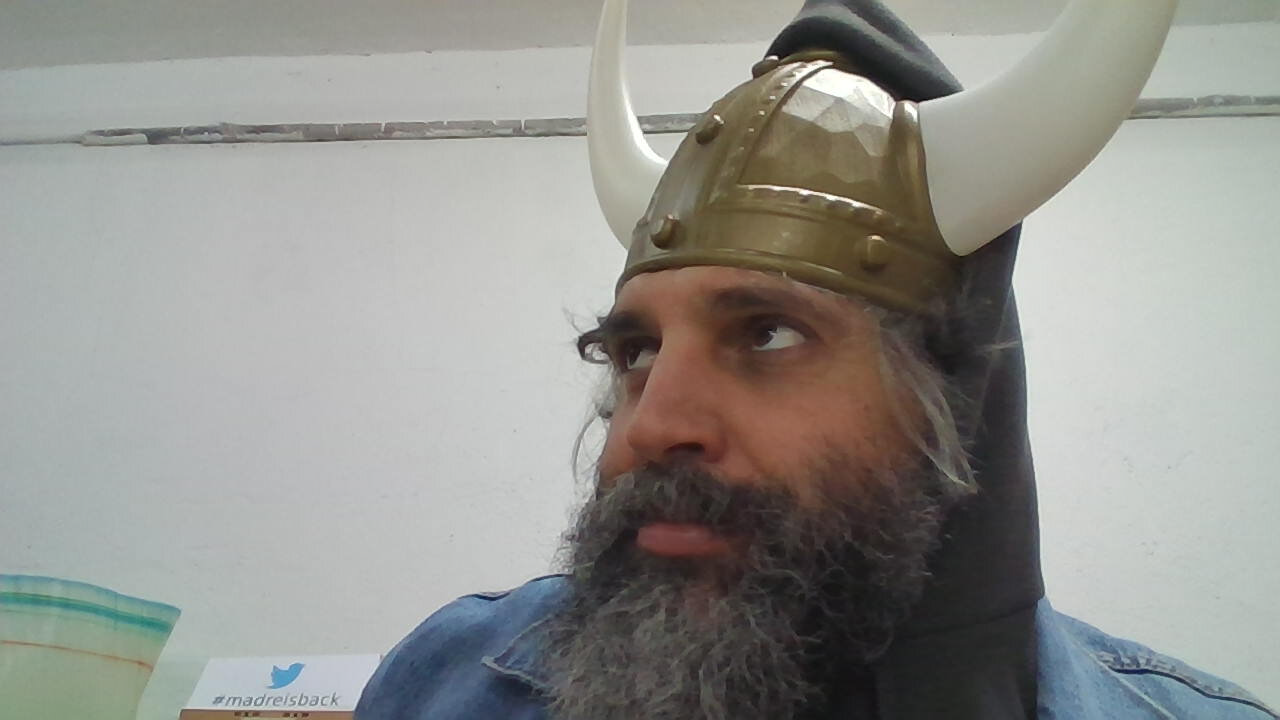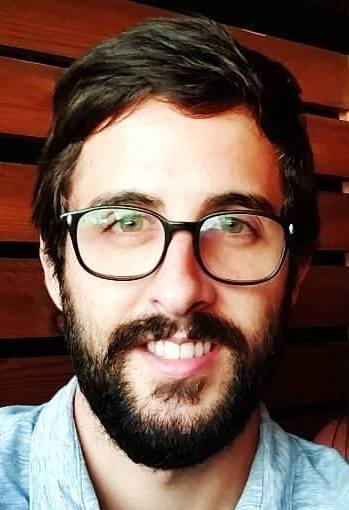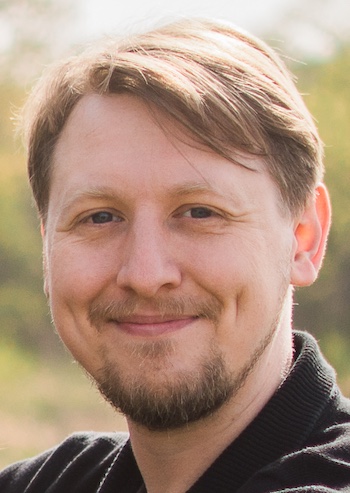SMC 2019 Summer School Speakers
We are very proud to present our SMC 2019 Summer School Speakers:
ARDUINO AND AUDIO by DAVID CUARTIELLES, Saturday 25 May. The Arduino and audio workshop looks at possible ways to create interactive sound production machines using Arduino boards. From low level bit-banging PCM on Arduino UNO as a way to make inexpensive sound toys, to the use of DAC in more modern processors. The workshop will have a strong hands-on component where all participants will make a small music instrument (or two) using 8-bit processors.
 David Cuartielles, Arduino co-founder. He is a PhD in Interaction Design by Malmo University. He has specialized in the the creation of digital platforms, being one of them the Arduino prototyping system, that he co-founder in 2005. He has experiences in building large installations and small devices using 8-bit microcontrollers.
David Cuartielles, Arduino co-founder. He is a PhD in Interaction Design by Malmo University. He has specialized in the the creation of digital platforms, being one of them the Arduino prototyping system, that he co-founder in 2005. He has experiences in building large installations and small devices using 8-bit microcontrollers.
OPTICAL MUSIC RECOGNITION (OMR) by JORGE CALVO-ZARAGOZA, Sunday 26 May. Optical Music Recognition (OMR) is the field that investigates how to teach computers to read musical scores. Bringing OMR to real use lowers the costs of making written music available in symbolic format, diversifying the sources for music information retrieval and digital musicology. State-of-the-art research and existing tools will be described so that attendees can integrate OMR into their own work.
 Jorge Calvo-Zaragoza received his PhD degree in computer science from the University of Alicante (Spain) in 2016. In 2017, he joined the Single Interface for Music Score Searching and Analysis (SIMSSA) project at McGill University as a Postdoctoral Fellow, under the supervision of Prof. Ichiro Fujinaga. Currently, he is granted with a postdoctoral fellowship under the Juan de la Cierva programme of the Spanish Ministerio de Economía, Industria y Competitividad. He has authored more than 30 papers about Optical Music Recognition in peer-reviewed journals and international conferences.
Jorge Calvo-Zaragoza received his PhD degree in computer science from the University of Alicante (Spain) in 2016. In 2017, he joined the Single Interface for Music Score Searching and Analysis (SIMSSA) project at McGill University as a Postdoctoral Fellow, under the supervision of Prof. Ichiro Fujinaga. Currently, he is granted with a postdoctoral fellowship under the Juan de la Cierva programme of the Spanish Ministerio de Economía, Industria y Competitividad. He has authored more than 30 papers about Optical Music Recognition in peer-reviewed journals and international conferences.
WIRING, SOLDERING AND ENCLOSING MUSIC by KOKA NIKOLADZE, Monday 27 May. This one-day interactive workshop will focus on different aspects of engineering and crafting expressive musical interfaces for specific musical works. Koka will present and discuss some of his inventions and designs. He will also provide an in-depth view in his composition and engineering toolkits and workflows. Controlling a symphonic orchestra in realtime, performing with a YouTube choir, playing a laptop with a viola bow - the workshop is planned to be highly informative, but also entertaining.
_Nikoladze.jpg) Koka Nikoladze, Artist based in Norway. With academic backgrounds in performance, composition and music technology, Koka composes and performs on different European stages. Koka is also known for creating and building futuristic electromechanical musical instruments, some of which have become viral on social media. His futuristic work has triggered attention of media, such as ARTE, Discovery Channel, MTV, WIRED, etc. Koka is a PhD candidate at the Norwegian Academy of Music. His research project with the title "How to Hack Performers" focuses on composition and musical score communication in realtime.
Koka Nikoladze, Artist based in Norway. With academic backgrounds in performance, composition and music technology, Koka composes and performs on different European stages. Koka is also known for creating and building futuristic electromechanical musical instruments, some of which have become viral on social media. His futuristic work has triggered attention of media, such as ARTE, Discovery Channel, MTV, WIRED, etc. Koka is a PhD candidate at the Norwegian Academy of Music. His research project with the title "How to Hack Performers" focuses on composition and musical score communication in realtime.
MUSIC RECOMMENDATION by PETER KNEES, Tuesday 28 May. During this one day course, the students will learn about different types of recommenders, user aspects, recommenders for creators, and even some business aspects of it. The user aspects will mainly focus on interaction.
 Peter Knees, Assistant Professor of the Faculty of Informatics, TU Wien, Austria. For over a decade he has been an active member of the ISMIR community, reaching out to the related areas of multimedia, text IR, and recommender systems. Apart from serving on the program committees of major conferences in the field, he has organized several workshops on topics of media retrieval. He is an experienced teacher of graduate-level courses on recommender systems and information retrieval and has given tutorials on music information retrieval at RecSys, SIGIR, ECIR, RuSSIR, and the Indonesian Summer School on MIR.
Peter Knees, Assistant Professor of the Faculty of Informatics, TU Wien, Austria. For over a decade he has been an active member of the ISMIR community, reaching out to the related areas of multimedia, text IR, and recommender systems. Apart from serving on the program committees of major conferences in the field, he has organized several workshops on topics of media retrieval. He is an experienced teacher of graduate-level courses on recommender systems and information retrieval and has given tutorials on music information retrieval at RecSys, SIGIR, ECIR, RuSSIR, and the Indonesian Summer School on MIR.